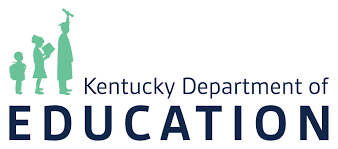Kentucky education secretary not surprised by report card
Published 4:22 pm Monday, October 31, 2022
THE CENTER SQUARE
Kentucky’s top education official said he was not surprised by the state’s results in this year’s National Assessment of Educational Progress, which were released on Monday.
Billed as the Nation’s Report Card, the assessment conducted by the U.S. Department of Education’s National Center for Educational Statistics found that 43% of Kentucky’s eighth graders had “below basic” achievement in mathematics and just 4% earned an “advanced,” or highest, rating.
More than a third, 35%, received basic scores, defined as “partial mastery of the knowledge and skills that are fundamental for proficient work in a grade and subject,” and just 17% earned proficient scores.
In reading, just 3% of eighth graders earned advanced scores, while 32% scored at the below-basic level. The report found that 39% were rated at basic achievement.
Nationally, 38% of eighth graders tested at the below-basic level in math, and 30% tested at that level in reading.
The NCES acting associate commissioner for assessment found the results from middle schoolers troubling.
“Eighth grade is a pivotal moment in students’ mathematics education, as they develop key mathematics skills for further learning and potential careers in mathematics and science,” Daniel J. McGrath said. “If left unaddressed, this could alter the trajectories and life opportunities of a whole cohort of young people, potentially reducing their abilities to pursue rewarding and productive careers in mathematics, science and technology.”
Kentucky’s fourth graders performed slightly better in math, with 25% scoring below basic, 42% at basic, 27% at proficient and 6% advanced. However, 38% tested at the below-basic level for reading.
Like most states, Kentucky saw declines from the 2019 results in 2022 scores for fourth graders and eighth graders in both categories.
In a statement, Kentucky Education Commissioner Jason E. Glass said the scores reflect “the profound impact” COVID-19 had on students learning. He pointed out that the state received more than $2 billion in federal American Rescue Plan Act funding for education, and nearly all of that went directly to schools based on need.
But, he said there’s no “quick fix” for the problem.
“Even with these resources, recovering from so much interrupted learning will take time,” he said. “We must use this data strategically to help inform us of where our students are and provide appropriate supports to keep them moving ahead.”
Glass’ comments echoed ones he made last week after the state released its report card on student achievement.
That assessment found 32% of elementary school students achieved novice-level math performance, compared to 10% who performed at a distinguished level. At the middle school level, 35% were novices, while just 9% were distinguished.







